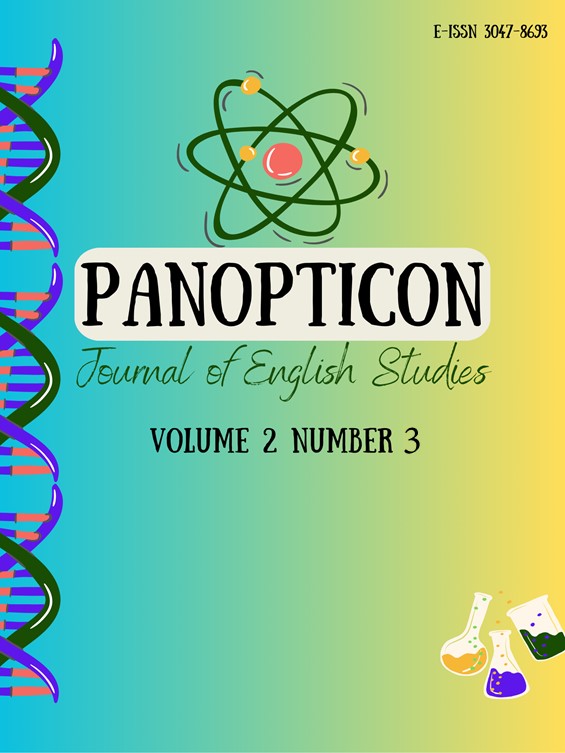Illocutionary Acts in Collider Interviews with the Jamojaya Film Crew
DOI:
https://doi.org/10.32493/pnp.v2i3.43361Keywords:
illocutionary speech acts, interview, speech actAbstract
This study aims to analyze the types and functions of illocutionary speech acts in interviews with Rich Brian and Justin Chon. It further identifies the most and least frequently used illocutionary acts in the interview. Using a descriptive-qualitative approach, this analysis relies on data drawn from a video interview with the cast and crew of Jamojaya on the Collider Interviews YouTube channel. The analysis is based on the framework developed by Searle & Vanderveken (1985). The data, transcribed into written form, was observed and categorized into various types and functions of illocutionary acts. Out of 139 instances of illocutionary acts identified, the breakdown is as follows: 85 assertive acts (61.15%), 33 directives (23.74%), 20 expressives (14.39%), 1 commissive (0.72%), and 0 declaratives. These findings suggest that assertive acts are the most prevalent, encompassing functions like informing, believing, stating, and asserting, which dominate the interview. Conversely, declaratives are the least represented category in this study.
References
Creswell, J. W., & Creswell, J. D. (2018). Research Design: Qualitative, Quantitative, and Mixed
Methods Aproaches.
Fitriani, S. S., Achmad, D., & Rasmita, F. (2020). An analysis of illocutionary acts in a fantasy movie.
Studies in English Language and Education, 7(1), 170–180.
https://doi.org/10.24815/siele.v7i1.13635
Haucsa, G. M., Marzuki, A. G., Alek, A., & Hidayat, D. N. (2020). ILLOCUTIONARY SPEECH ACTS
ANALYSIS IN TOM CRUISE’S INTERVIEW. Academic Journal Perspective : Education,
Language, and Literature, 8(1), 11. https://doi.org/10.33603/perspective.v8i1.3304
Khairatunnisa, & Manaf, N. A. (2021). Seloka: Jurnal Pendidikan Bahasa dan Sastra Indonesia Analysis
of Illocutionary Speech Acts on Student’s Social Media Post and Comments. Seloka: Jurnal
Pendidikan Bahasa Dan Sastra Indonesia, 10(1), 28–33. https://doi.org/10.15294/seloka
Searle, J. R. (1969). Speech Acts. The Syndics of The Cambridge University Press.
Searle, J. R. (1979). EXPRESSION AND MEANING: Studies in the Theory of Speech Acts. Cambridge
University Press.
Searle, J. R., & Vanderveken, D. (1985). FOUNDATIONS OF ILLOCUTIONARY LOGIC. Press
Syndicate.
Sri Rahayu, & Yusni Khairul Amri. (2023). Analysis of Illocutionary Speech Acts on “Whatshapp” Social
Media. LingLit Journal Scientific Journal for Linguistics and Literature, 4(1), 40–48.
https://doi.org/10.33258/linglit.v4i1.859
Yule, G. (1996). Pragmatics. Oxford University Press.
Yule, G. (2020). The Study of Language (Seventh Edition). Cambridge University Press.
https://doi.org/10.1017/9781108582889
Yulian, A. A., & Mandarani, V. (2023). A SPEECH ACT ANALYSIS: ILLOCUTIONARY ACTS
PRODUCED BY TEACHER IN ESL CLASSROOM. Celtic : A Journal of Culture, English
Language Teaching, Literature and Linguistics, 10(1), 1–13.
Downloads
Published
How to Cite
Issue
Section
License
Copyright (c) 2024 PANOPTICON: Journal of English Studies

This work is licensed under a Creative Commons Attribution 4.0 International License.


